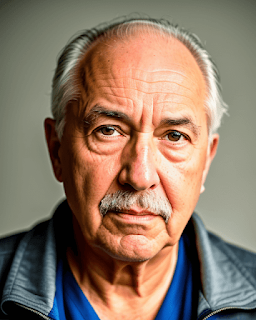The Painful Truth About Hospice Care Providers!
Are you looking to get more information about hospice care providers? Brace yourself for a sobering reality check. While hospice care presents a tender and empathetic option for those in the final stages of their lives, there is often a much darker side to the painful truth about hospice care providers. Hospice care services are frequently considered a tender and empathetic option for those in the final stages of their lives.
However, the painful truth about hospice care providers can be pretty sobering. While hospice care costs are generally covered by insurance Medicare, Medicaid, or private insurance, these sources have limited budgets, leading to pressure from insurance companies to keep costs low.
As a result, some hospice providers may cut corners on maintenance or deny certain services, while others may keep patients enrolled for extended periods to maximize reimbursement. It's important to note that not all hospice providers are the same. Some may lack sufficient staffing and fail to provide adequate pain management, emotional support, or spiritual care.
Families and patients may need to advocate for the quality of care they deserve. Saying goodbye to loved ones is the most difficult aspect of hospice care. Although it can offer comfort and support, it cannot change the progression of a terminal illness.
The truth about comfort care services?
The alarming truth about comfort care services is that many families often wait until the final moments of a loved one's life to consider hospice care; however, it's not too late to benefit from these services. Hospice care can enhance the quality of life and relieve unnecessary pain for both patients and their families. The longer patients receive hospice care, the better their quality of life will be.
Another alarming reality is that many people perceive hospice care services as a failure or abandonment of their loved ones, but this couldn't be further from the truth. Hospice care services provide comfort, dignity, and a sense of calm during pain and suffering. They offer a compassionate and empathetic community that understands the challenges and heartache of providing end-of-life care.
There is a common misconception about hospice care services- that they are only for people who are terminal and have no hope of recovery. However, the truth is that hospice care is a vital service providing comfort, care, and support for individuals with life-limiting illnesses and their families.
How is hospice funded?
Funding can significantly impact the quality of care hospice caregivers provide, but who pays for hospice care at home? Inadequate funding can result in overworked employees who cannot provide personalized and compassionate care, limited access to technology and equipment, and substandard care.
On the other hand, adequate funding can attract and retain qualified staff by offering better compensation and benefits, leading to improved care. A well-funded hospice provider can attract more qualified personnel while providing superior compensation and benefits. The manner in which hospice is funded plays a crucial role in determining the quality of care and the services provided. Adequate financing can result in enhanced care, whereas insufficient funding may lead to substandard care.
Families and patients should advocate for the quality of care they deserve and seek out well-funded providers to ensure effective and compassionate end-of-life care services.

Questions to ask hospice caregivers?
It can be emotionally challenging when you or a loved one face the end of life. Hospice care services aim to relieve physical, emotional, and spiritual pain. Improving hospice care enhances patients' quality of life by offering pain management, emotional support, and care tailored to their needs.
Hospice care services offer a multidisciplinary approach, employing healthcare professionals such as doctors, nurses, and social workers to deliver physical, emotional, and spiritual support. However, despite the essential role of hospice care, many individuals do not take advantage of this transformative service. Asking questions about hospice and gathering information are crucial for making an informed decision about hospice care for yourself or a loved one.
What is hospice care? Hospice care is a specialized form of healthcare that focuses on enhancing the quality of life for individuals facing a life-limiting illness. It emphasizes comfort care rather than curative treatment. What services are included in hospice care? Hospice care may encompass medical assistance, pain management, emotional support, spiritual counseling, and other services customized to meet the individual's needs and preferences.
Questions about hospice?
Hospice care can provide comfort, dignity, and quality of life for those facing a life-limiting illness. Remember, you are not alone—the hospice team supports you every step of the way. If you or someone you know is considering hospice, it is essential to ask questions and gather information. Below are some common questions about hospice that you may want to ask.




|
-
How is hospice care different from other types of care? Hospice care focuses on comfort rather than cure. It provides a multidisciplinary team of healthcare professionals, including doctors, nurses, social workers, counselors, and volunteers, who work together to meet the needs of the patient and their loved ones.
-
How do I know if hospice care is the right choice? If you or your loved one has a terminal illness and the care focus has shifted from curative to comfort, hospice care may be the right choice. Your doctor or hospice provider can help determine if hospice care is appropriate.
-
How do I choose a hospice provider? You can ask your doctor, friends, or family for recommendations. You can also visit the National Hospice and Palliative Care Organization website to search for hospice providers in your area.
-
Is hospice care covered by insurance Medicare, Medicaid, and most private insurance plans cover hospice care? Your hospice provider can also assist with financial concerns.
-
What is hospice care team's role? The hospice team includes doctors, nurses, social workers, counselors, and volunteers who work together to meet the patients and their loved ones' physical, emotional, and spiritual needs.
-
What happens if the patient's condition improves? If it does, the patient can be discharged from hospice care. If they later need hospice care again, they can be readmitted.
-
How can the patient's loved ones be involved in hospice care? The patient's loved ones are an essential part of the hospice team. They can participate in care planning, provide emotional support, and participate in the patient's care.
|
It's important to realize that hospice in Los Angeles does not hasten death or prolong life artificially. Hospice care services offer a unique and compassionate way of providing care for individuals with limiting illnesses. The aim is to support the patient, ease the pain, and bring comfort in the final stages of life.
The hardest part of hospice care is often saying goodbye to loved ones. While hospice care can provide great comfort and support during such a challenging time, it is vital to remember that it cannot reverse the course of a terminal illness. Families must accept that their loved one's time is limited and hospice care is only temporary.
It's vital to understand that hospice care is not always the gentle and compassionate experience it is made out to be. Funding limitations, incentives to keep patients enrolled, and variations in the quality of care can all contribute to a painful reality. However, hospice care can provide great solace, comfort, and support for those facing terminal illnesses during their final days.






